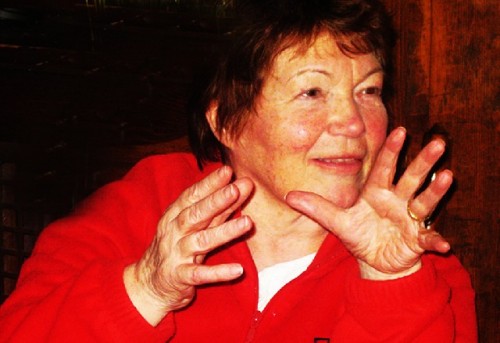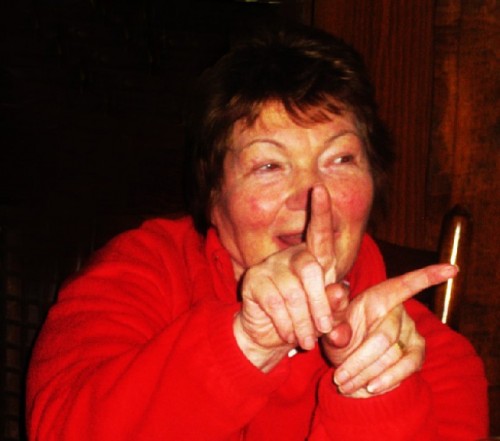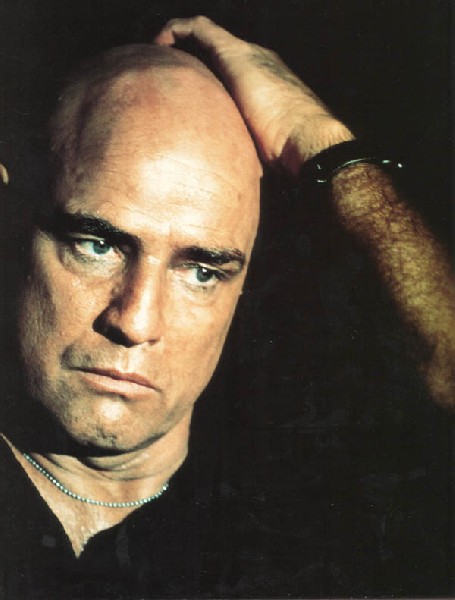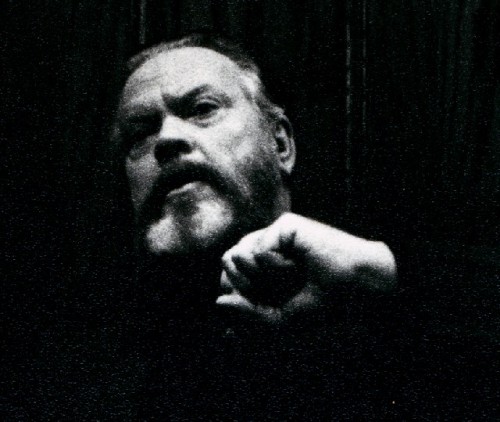Tina Packer on Women of Will
Shakespeare & Company Five Part Series
By: Charles Giuliano - Feb 15, 2010
The project Women of Will by Tina Packer, will preview on February 28 at Shakespeare & Company with a late May opening. The series of five evenings will run through the summer with a marathon, dinner, seminars and related events in the fall. The performance, which co stars Nigel Gore and is directed by Eric Tucker, will run for about three hours with an intermission. It will be followed by a discussion. It is a format that will be featured during the run of the series based on the arc of Shakespeare's oeuvre in chronological sequence.
It is an epic project that conveys Packer's career long devotion to the study, performance and production of the work of William Shakespeare. In particular, she is addressing received notions of the canon. She is conveying how he progressed in relationship to an evolution of presenting women in his plays. In addition to five evenings of duets by superb actors it is hoped that audiences will emerge with fresh insights.
Even today Shakespeare continues to be the most produced playwright of all time. Packer is intent on helping us to understand why.
This great work, a summary of her life in theatre, started fifteen years ago when she earned a Guggenheim Fellowship. With the income from the Foundation she participated in a nine month residence at Harvard University as a Bunting Fellow. When she returned to S&Co the first part of the series, covering his earliest plays, was presented at The Mount. In the next couple of years there were workshop productions of parts two and three. During the past year she has completed the final two parts. It is her intention to present what she calls her "Ring Cycle" over the course of the season.
Recently, we caught up with Packer during a narrow window between having opened a production of Les Liaisons Dangereues, which she directed, and the start of rehearsals for the preview on February 28. She will then be off to the Mercury Theatre in Colchester, England where she will offer three performances in March. Then return to prepare for launching the season in Lenox. Her series of evenings will run in the Elayne P. Bernstein from the end of May through the fall. It will alternate with other productions. It is anticipated that this seminal event will generate global media coverage and establish new paradigms for scholars and performers of works by Shakespeare.
While an artist of boundless vision, ambition and energy Tina is at turns serious and insightful, earthy, raucous, and hilarious. Her public appearances are generally punctuated with laughter. She enjoys her own jokes poking fun at the absurdities and ironies of life. She likes to level the playing field by reminding us of simple origins and a self image as just a working girl. Getting to know her you sense the thin sharp edge and madness involved in keeping a theatre company together, against all odds, oi vey, for all these years.
One of the occupational hazards of probing deeply into all of those characters results in collateral damage. It is not so simple to take on and then discard characters. Particularly, tragic and tormented ones.
Tony Simotes, the current artistic director, who was with S&Co in the formative years, popped in briefly. The subject of therapy surfaced and he commented "At the Mount early on we had a regular shrink on staff. He's deceased now. It's about what I call trip wires. The term comes from Vietnam when, in the jungle, a soldier trips on a wire and sets off an explosion. For an actor it's when you are pushing and probing deeply into psychological questions. An actor hit walls. The language stops them or an image controls them. I call them emotional trip wires when you loose context with a scene. It developed in the early years. Who are you within this language (of Shakespeare). Otherwise they are just museum pieces 400 years removed from character and context. We started to build who we are as artists in the sense of our creativity. What makes a performance unique? If four guys are playing Hamlet why are they not all alike ? There are a whole lot of other experiences going on that particular night for the performer that bring us into the experience of the play. Tina, for example, has done Shirley Valentine hundreds of time. But the language of Shirley and how she sees Greece on any given night is always different."
I wanted to know more about her time at the Bunting. As we talked about it she was surprised that I knew a lot about the program. Astrid and I were close to the former director, Florence Ladd, and her husband Bill. The Bunting, and its program for women, was a very special place. Just after Florence stepped down it was integrated, if that is the term, into Harvard. Its program now includes men. Nobody who has been close to the Bunting feels that the change represents progress.
Reflecting on her time at the Bunting she said "Fifteen years ago is quite a long time. It was the year I earned a Guggenheim. It was recently my 15th anniversary with my Bunting sisters. We had a gathering at Florence's home. It's the year I got a Guggenheim fellowship. The year was actually 9 months. The Bunting has changed. They wanted it not to be. They (Harvard) didn't like that strong feminist presence. For women to have equal rights with men. The right to use their brains and earn equal pay. For our voices to be heard."
The Bunting was established to invite women from the spectrum of the arts, sciences and humanities to experience a residence with access to the range of resources of Harvard University. There were studios for artists as well as offices. Once a week there were brown bag lunches in which the fellows would informally present and discuss their work.
"There were physicists and mathematicians" Tina said. "Science people, or women working on peace. It was wonderful and there are many women I am still friends with. The Bunting initially turned me down. Then it was announced that I got a Guggenheim. Florence Ladd read it in the paper and I got a call from her. She told me she was making an executive decision and that we would love to have you here. Can you come?"
Some of the fellowships came with room and board. In Tina's case, as she explained "The Guggenheim paid for that and the Bunting provided the company of wonderful women. Adrian LeBlanc was one of them. She writes about inner cities. I lived with Carol and Jim Gilligan. She's a leading feminist who wrote In a Different Voice. She was the leader of gender studies at Harvard. He's an expert on violence."
How did she spend her time at the Bunting? "I worked on Women of Will. I brought it back to the Mount and the first year I put up part one Warrior Women from Violence to Negotiation. It dealt with all the early plays. I got part one up. It went up in the Stables Theatre (at the Mount in Lenox) as a workshop production. I was off book but working on script as I always do."
With Tina warming to the subject of feminism I asked an inevitably dumb question. Do you like men? There was a penetrating laser response. "I do Charles," she said in a sensual manner. "Haven't you noticed? I find men sexually attractive and when they have good brains I like them even more. (A good laugh)"
The directness and playful provocation seemed so typical. "That's why I like you. You speak your mind and never hold your tongue" I remarked. "That's why I live here in the States," she said referring to the prim and starchy manner of British society in which it is outré to convey genuine feelings. "I have been in therapy long enough to know when I offend people. I have 12 years of therapy," she said. "I keep thinking it will come to an end. Then I end a job (stepping down as Artistic Director of S&Co) and make a huge change. I like discussing what Tony said about when you get stuck on things. There are issues when you are performing. How to get through this without destroying relationships. How to avoid screaming at other people. Or hating yourself. It is somewhere to take it each week and get a perspective rather than always assuming that the other person is at fault. It's about damage control."
Playing Martha in Who' s Afraid of Virginia Woolf last fall in Boston must have entailed a lot of damage control.
"Playing Martha was one of hardest things I've done" she said. "Not to do it, just because it's hard, is not a reason not to do it. In fact that's a reason to do it." At the end of the day how did you get rid of Martha? "In the beginning of the run, when the houses were small, I was paranoid. When audiences weren't big I couldn't tell if they liked it or not. I couldn't tell how it was reading because it wasn't Shakespeare. I didn't have my own internal standard going."
Marlon Brando, arguably the greatest actor of his generation, appeared to become a tragic parody of himself after the mid point of his career. He talked about the collateral damage of never recovering from working with Bernardo Betrolucci, in 1972, on Last Tango in Paris. Brando was gonzo but stunningly brilliant in a cameo role in Apocalypse Now in 1979. He reported to Coppola's set over weight and unprepared. He never read the script or Conrad's Heart of Darkness. But is there a more compelling scene in all of cinema than his conflict with his assassin played by Martin Sheen? Are there more stunning and emotionally wrenching lines than "The horror. The horror." During a press luncheon with Sheen, at the time, he revealed to us how the film, and a heart attack, almost cost him his life.
Eating and drinking himself to death on his remote Pacific island (from when he filmed Mutiny on the Bounty) Brando was a casualty of his career as an actor. When all of those characters merge, exacerbated by method acting where one lives the role, in all the fragments there is ultimately no self. It is an occupational hazard.
Responding to the discussion of Brando Tina said "It is the nature of the artist that you are demanding to see things, normally that you don't see, in order to live a sane life. So that we don't run amuck inside. What artists and poets do is demanding. How many poets kill themselves, burn out at an early age, or go mad? Their problems are huge compared to rest of the world."
Like Ezra Pound? "Or Sylvia Plath. They ended up killing themselves. Brando did in effect kill himself as did Orson Welles. They eat and drink to excess until the senses are numbed. They anesthetize themselves sufficiently to get through life. The artist has to be more alive and sensitive to what is going on. So, on many levels, it's unbearable because there is nobody there playing with you. It feels like a very lonely place. It hurts and is unbearable because it's also ecstatic. It's difficult to live in the world on that level. You have to come down. You have to come back to the real world."
Which is why shrinks are in therapy. I asked if she had seen Gabriel Byrne in the HBO series In Treatment? "Yes, it was great theatre" she said. "I wonder if he was in therapy when he was doing the show. Anyway, somebody like Brando. You need a lot of discipline to stay in the field everyday. To do your work and not go crazy. Will Shakespeare sustained it for 20 years and then went home to Stratford. For the last years he lived a much quieter life. It's when he wrote the Tempest and Pericles."
I asked if we are going to see Olympia Dukakis and her version of The Tempest this summer? "It is less a matter of if than when" she said. We discussed how Dukakis seems to be an associate of Simotes. She appeared at S&Co last summer for a one nighter. "Olympia was the teacher of Tony, Kevin, Dennis, and Rocko Sisto. They all were together at NYU. They were her students and she is very proud of them. She did Lear for us eight to ten years ago. I was the Fool in that production."
The Fool always has the best lines. Everyone wants to play the Fool. "The Fool is sitting with audience" she said. "It started with Will Kemp in Shakespeare's day. He always lets clowns do more than is set down for them in the text. Kemp was running all over the theater."
We attended a performance at the recreated Globe Theatre in London. There was a large area with standing room in front of the stage. The tickets were cheap at about five pounds. During Shakespeare's day it cost just a few cents. In that sense it was a popular art form. Often there was a lively interaction with the audience talking back to the actors and even hurling things on stage.
"I like standing up" Tins said in regard to attending performances at the Globe. "There is a lot of feedback and call and response. It's a collective event. In the playhouse they were selling stuff and people were plying their trades." You sound like a populist. "I am a populist. Just a good working class girl."
After the Guggenheim/ Bunting fellowships, over the next two years, the first three versions were put up. The cycle started with Warrior Women with Jonathan Epstein. The second was Living Underground or Dying to Tell the Truth with John Lee Davenport. Part three was The Maiden Phoenix or the Daughter Redeems the Father with Chris Coucill. All three partners were actors with the company.
"Living Underground is about disguising yourself as a man" she said. "In the early plays women are virgins on a pedestal or a vulva with teeth, the harridan, vagina dentate. In Warrior Women in scenes from Henry VI the women are sexually promiscuous and are burnt at the stake as witches. Women of Will looks at Will as in willpower. Will means William Shakespeare. Will in Elizabethan times also means sexuality and libido. It describes the sexual parts. Will is any of the sexual parts. The sonnets are all about will. The sonnets are very dirty. You should read them."
I commented that a number of the sonnets were written to Shakespeare's male lovers. Other than what he actually wrote we do not know that much about him. There isn't even an accurate portrait of him. "We have six disputed portraits and they look fairly much alike" she said. "He was married with three children. The boy died young. That left him with two daughters. He had relations with men but he was mostly heterosexual. This did not have the connotations that there are today. It is only since Victorian time that it got divided up. Before then, there wasn't the rigidity of sexuality that there is today. With soldiers in the field it was not called homosexual because they had sex with each other. Several people slept in one bed. It was only later that they were called effeminate and only wanted to be with men. Victoria never acknowledged that there was sex between women so there were no lesbian laws."
Women of Will has expanded from three to five parts. "After the early plays he started to write from inside the women not just viewing and reacting to them" she said. "Teenage boys react to women they have no power over. With Romeo and Juliet he starts writing inside Juliet as well as inside Romeo. It is the first play that is about equals. My point is that he starts to write from inside when the women begin to disguise themselves. They start to dress and act like men. At the same time everything is great. When they take over it all ends up ok. Everyone gets married and procreating takes place. If they stay in their frocks they end up mad. They commit suicide or are killed. They are Dying to Tell the Truth so they stay alive. If they stay in women's gear they end up dead. In Othello three women die. It is about how women get destroyed. Othello is black which is why Desdemona's father does not want her to marry him. He is jealous. The rest of the time he's supported by the state. They believe and love him. It's not like he is fighting the black glass ceiling. The tragedy is the women who end up dead even though they don't do anything."
What are the greatest women's roles? Tina responded "Cleopatra, Rosalind in As You Like It, Margaret of Anjou in Henry VI Parts One to Three and Richard III. They are all in Women of Will but not Cleopatra. 15 years ago I wrote part one then parts 2&3 over the next two years. With part three the Maiden Phoenix or the Daughter Redeems the Father we go into the late plays. There is shift that stops being about love between a man and woman and instead is principally about fathers and their relationships with daughters. It begins with Lear, then Pericles, then Cymeline which is is not done very much. Then Winters Tale, Tempest, and Henry VIII which is hardly ever done. It is when Henry is divorcing Katherine and marrying Anne Boleyn. He was looking back at Elizabeth. And the last thing he writes about women is Cranmer's blessing over the baby. Cranmer was the chancellor. So that's the last thing he wrote about women and good grows with her (Elizabeth)."
She talked about trying to complete the cycle. "What I've done now needs to work. I couldn't do more work while I was overwhelmed by the problems of the company. Until now I haven't covered the progression properly so there are now five parts to it. There will be five evenings. With the two others I've put in it's my Ring Cycle. What I'm showing this summer is an overview."
She describes the meaning and intent of the series of plays. "I started as a director in a man's field. Over 30 years there is a perspective. I have directed almost all of the plays in the canon. If I see what is not normally seen I want to put it out there as a way of looking at Shakespeare. I want to do it thoroughly, in chronological order, and what I want people to come away with is the canon as a whole."
Are you deconstructing Shakespeare? Tina responded "Deconstructing ? No realigning with an emphasis on what's important. At the end of summer we'll have a weekend of all five parts. Whether they are all up by then I don't know. That's why a few should be ok but I hope I can do all five."
The five parts are: Act One, The Warrior Women: From Violence to Negotiation; Act Two, The Sexual Meets the Spiritual: New Knowledge; Act Three, Living Underground or Dying to Tell the Truth; Act Four, Chaos Is Come Again: The Lion Eats the Wolf; Act Five, The Maiden Phoenix: The Daughter Redeems the Father.
All told, over five performances, averaging three hours each with discussions that follow, that is some fifteen hours of theatre. It will truly be a remarkable portion of the canon. Upon the completion of her 'Ring Cycle' perhaps the company will bring back that resident shrink. After imbibing so deeply of the Bard by then we should be in need of group therapy. It will be quite a test of our communal Will power.







